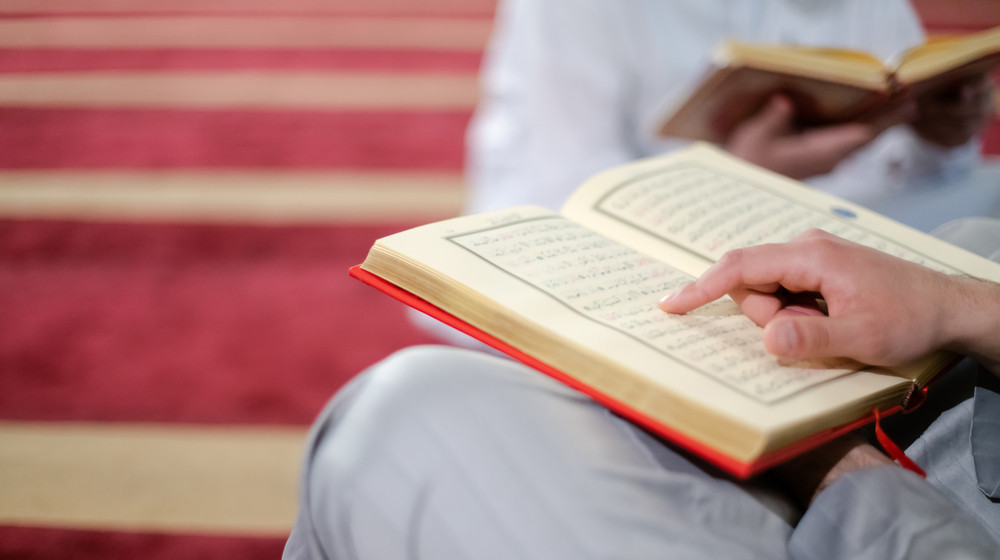There may be times when people attempt to disparage or otherwise criticise Islam. What such people may be forgetful of, is that the way of life is based upon divine revelation and a clear guidance in all aspects of life. Part of the religion of Islam is to understand the concept of naskh or abrogation.
So, in continuing this short series, we offer the following questions and answers to aid in understanding the concept:
- What are some of its wisdoms?
- When is something actually naskh?
- What can be abrogated?
Q1 | What are some of its wisdoms?
It can be argued that there are at least three key elements:
1
Revealing scripture in this fashion – with laws and verses revealed for a fixed time to a fixed purpose, later repealed when that limited purpose was achieved – allowed it to meet the evolving needs of the nascent Muslim community.
2
Giving the Muslim Ummah the best opportunity to seek God’s pleasure.
Sometimes, a more arduous law is abrogated with a lighter, less exacting one, providing ease for the believers.
In other instances, a more yielding law is replaced with a more demanding one with greater reward, all in accordance with divine wisdom.
3
There is a trial for the believer, a test to see if he or she submits.
Q2 | When is something actually naskh?
Scholars of the field have enumerated a set of preconditions for something to count as a valid instance of naskh. It is not uncommon to see these preconditions altogether in one list.
On closer examination, it is possible to differentiate them into two sets.
The first set identifies the field of naskh; that any law or idea might supplant an existing one is not something unique to Islamic law or religion. This set clarifies that it is abrogation as it relates to Islamic scripture and its rulings that is the object of discussion.
Once it is established that we are speaking about abrogation within the Islamic scriptures, and not any other wider notions of the term, the second set of preconditions can help to identify when there is an actual instance of abrogation within the Islamic scriptures, and not other types of relationship between two rulings or texts of scripture.
The preconditions
- That the abrogated item (mansūkh) pertains to a religious matter
- That the abrogating item (nāsikh) also pertains to a religious matter
- That the abrogating item/ text is later than the abrogated one
- That there is an actual contradiction between the two scriptural texts that cannot be reconciled
Q3 | What can be abrogated?
Together, the Qur’ān and Sunnah make up Islam’s sacred scriptures, yet they have different qualities.
Crucially, amongst these is the way in which they have been transmitted down through the generations.
Qur’ān
The Qur’ān has been transmitted in its entirety by a process of mass transmission (tawātur), whereby a considerable number transmit the text on to even larger numbers at the next stage.
This affords the transmission process the highest degree of certainty possible.
Sunnah
Overall, the Sunnah is not transmitted by the above mode.
Consequently, there is a difference in the status of the Qur’ān, in comparison to the Sunnah.
Abrogation can occur in either, although the abrogating text must be of an equal or higher status in terms of its mode of transmission.
Four ways of abrogation
In principle then, there are four possible ways – when taking the Qur’ān and Sunnah together – in which the abrogating (nāsikh) and the abrogated (mansūkh) can be combined.
However, not all four are universally accepted.
These are:
a) Abrogation of the Qur’ān by the Qur’ān
There is an agreement from Islamic scholars on the possibility of this occurring.
b) Abrogation of the Sunnah by the Qur’ān
Most Islamic scholars agree that this can be accepted.
An example of this is the direction of the qiblah for prayer changing from Jerusalem to Makkah.
The older qiblah direction was set by teaching of the Sunnah, whilst the new qiblah is based on the directive in the Qur’ān:
“We have been seeing you turning your face to the Heavens. So, We will certainly assign to you a qiblah that you would like. Now turn your face in the direction of the Sacred Mosque…” [1]
c) Abrogation of the Sunnah by the Sunnah
There is an agreement on the possibility of this occurring, except in the case of a mass-transmitted Sunnah (mutawātirah) by a Sunnah that is not mass-transmitted (ahād).
d) Abrogation of the Qur’ān by the Sunnah
Most scholars do not believe that this can occur, unless the abrogating Sunnah is mass-transmitted (mutawātir).
There is disagreement as to whether this is possible.
In the third and last part of this short series, we will pose three further questions, and offer answers to them in hopes of bringing further clarity to this unique topic.
Source: Islam21c
Notes
[1] al-Qur’ān | 2:144









